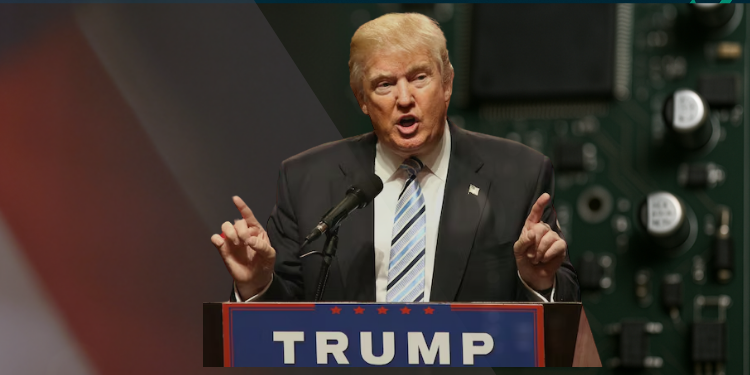- Trump announced a new tariff probe targeting semiconductors and the electronics supply chain, citing national security concerns.
- Global tech suppliers like China and Taiwan may face pressure, as the U.S. reassesses its reliance on foreign-made electronics.
- The investigation could lead to new tariffs or regulations, with potential ripple effects across consumer tech and defense industries.
U.S. President Donald Trump is once again shaking up the trade conversation—this time turning his attention to the electronics supply chain. In a Truth Social post made Sunday, Trump said his administration is now looking into semiconductors and other critical tech imports as part of a national security tariff investigation.
The announcement came while Trump was flying aboard Air Force One to West Palm Beach, Florida, on April 13. The message was short, but the implications could be big.
“We are taking a look at…the WHOLE ELECTRONIC SUPPLY CHAIN”
Supply Chains Under the Microscope
Although specific countries weren’t mentioned, the move has already sparked speculation about renewed trade friction with key electronics suppliers like China, Taiwan, or even South Korea. These regions play huge roles in U.S. access to semiconductors—especially the high-end chips used in defense systems, phones, and advanced computing.
With tech supply chains already under pressure due to global instability and shifting alliances, this latest probe could mark the beginning of a fresh round of tariffs or restrictions.
Analysts have been warning for months that U.S. over-reliance on overseas tech manufacturing poses serious risks—not just economically, but strategically.
National Security Meets Economic Pressure
Trump’s framing of the investigation around national security gives the move a broader justification beyond trade disputes. It’s a playbook we’ve seen before, but this time the focus feels narrower—and arguably more urgent.
Whether this results in direct tariffs or just new regulations isn’t clear yet. But one thing’s certain: the U.S. is preparing to reassess its relationship with imported technology, and the impact could ripple through everything from smartphones to defense systems.
Expect more updates in the days ahead as the administration lays out its next steps—and as markets react.














